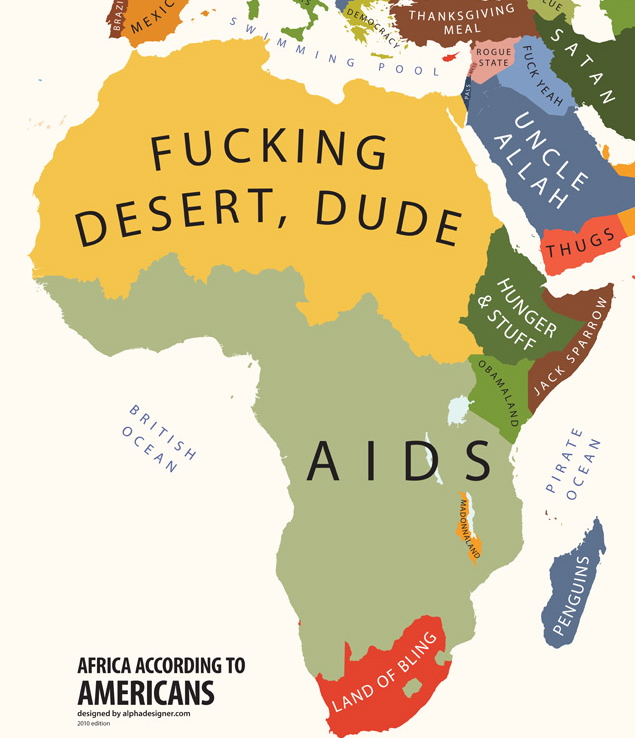The Mapping Stereotypes Project

The full set of “maps” here. H/T: Ignacio Fernandez Amunategui

The full set of “maps” here. H/T: Ignacio Fernandez Amunategui

Pedro Pinho’s latest film follows a Portuguese engineer in Guinea-Bissau, exposing how empire survives through bureaucracy, intimacy, and the language of “development.”

Built by Italian Fascists in 1928, Mogadishu Cathedral was meant to symbolize “peaceful conquest.” Today its ruins force Somalis to confront the uneasy afterlife of colonial power and religious authority.

Behind the refereeing drama and rising revenues, AFCON 2025 exposed a tournament increasingly shaped by global capital rather than the long-term health of African football.

France’s mass deportation orders reveal how colonial logics persist in migration policy, turning former subjects into administrative problems to be expelled.

The Federal Capital Territory’s green belts were designed as flood buffers and cooling lungs. But under its current leadership, they are becoming patronage spoils.

Honored in Yorubaland as “one who repairs the world,” Jesse Jackson’s life bridged civil rights, pan-Africanism, empire, and contradiction—leaving behind a legacy as expansive as it was imperfect.

Angola’s golden jubilee culminated in a multimillion-dollar match against Argentina. The price tag—and the secrecy around it—divided a nation already grappling with inequality.

What happens when we stop reading African fiction through European literary history and instead trace its worldmaking through indigenous cosmology?

What connects Zimbabwe’s chimurenga spirit, the disappearing bateleur eagle, and the stubborn afterlife of colonial capital?

A new film investigates the long-standing land disputes between Kenyans, the government, and multinational corporations, whose expansive plantations are the site of much of the Kikuyu people’s hardship.

A redevelopment project in Nairobi’s Ngara district promises revival—but raises deeper questions about capital, memory, and who has the right to shape the city.

The Marxist historian Mohammed Harbi spent a lifetime dismantling the myths of Algeria’s national movement and warning that anticolonial victories could harden into bureaucratic rule.

A constitutional challenge over religious practice reveals the unresolved colonial and postcolonial politics of Ghana’s mission-founded secondary schools.

Long dismissed as apathetic, Kenya’s youth forced a rupture in 2024. As the 2027 election approaches, their challenge is turning digital rebellion and street protest into political power.

By placing Kwame Nkrumah at the center of a global Black political network, Howard W. French reveals how the promise of pan-African emancipation was narrowed—and what its failure still costs Africa and the diaspora.

iShowSpeed’s Africa tour is widely celebrated as respectful and refreshing, yet it operates within a long tradition of racialized spectacle that turns Africa into content and Blackness into performance.

Nigeria’s insecurity cannot be solved by foreign airstrikes or a failing state, but by rebuilding democratic, community-rooted systems of collective self-defense.

Can a festival meaningfully applaud African creativity while its sponsor profits from African death?

The shooting and prolonged detention of Serrote José de Oliveira expose how Angola’s legal order is not merely breaking down, but being deliberately replaced by a system of impunity and police power.

David Elstein’s attack on David Olusoga’s docuseries on the legacy of the British empire reveals less about historical error than about the enduring impulse to rehabilitate British colonial rule.